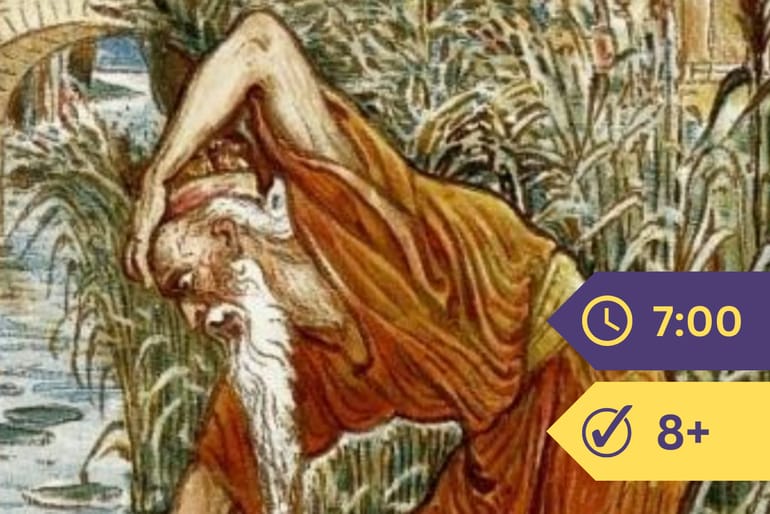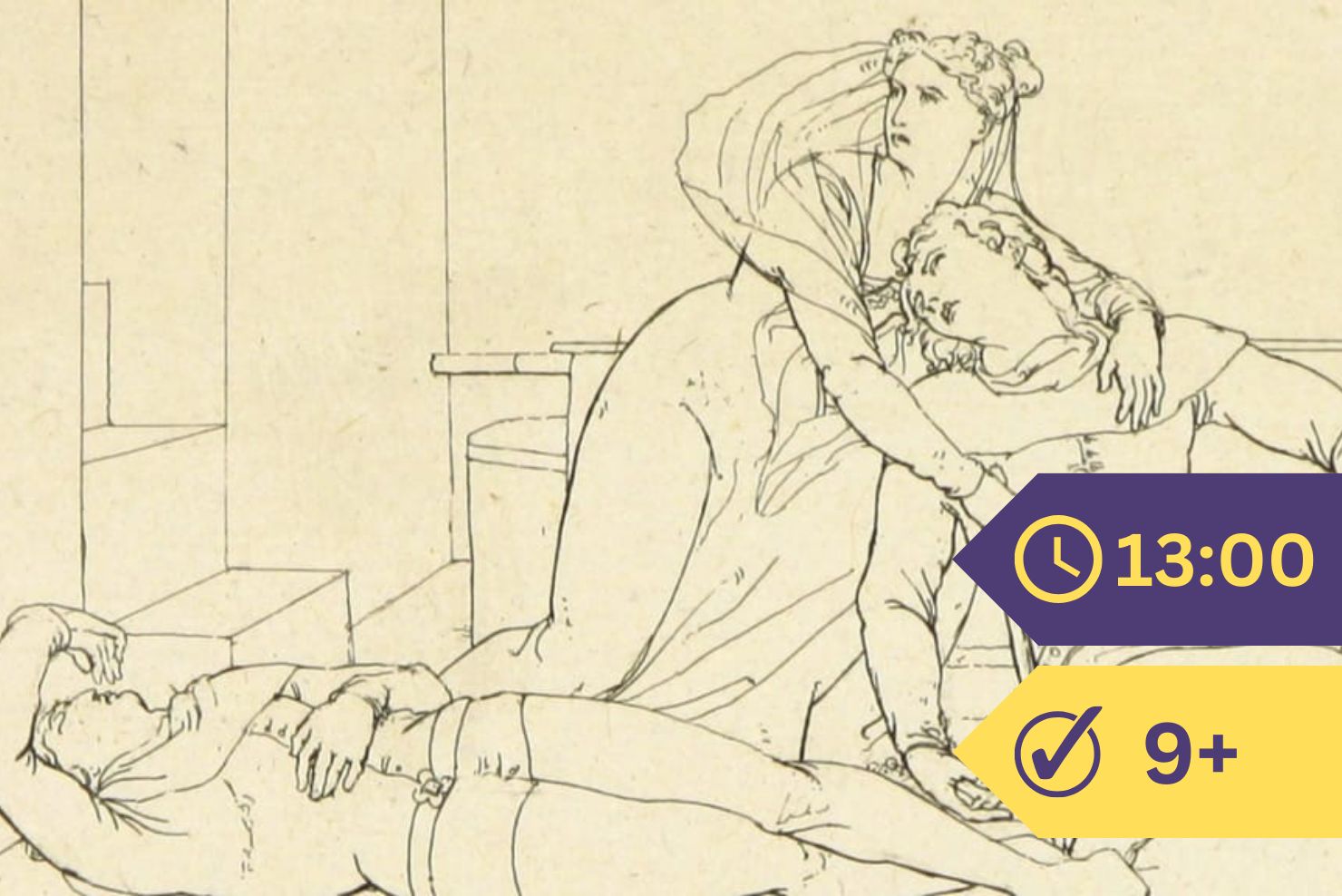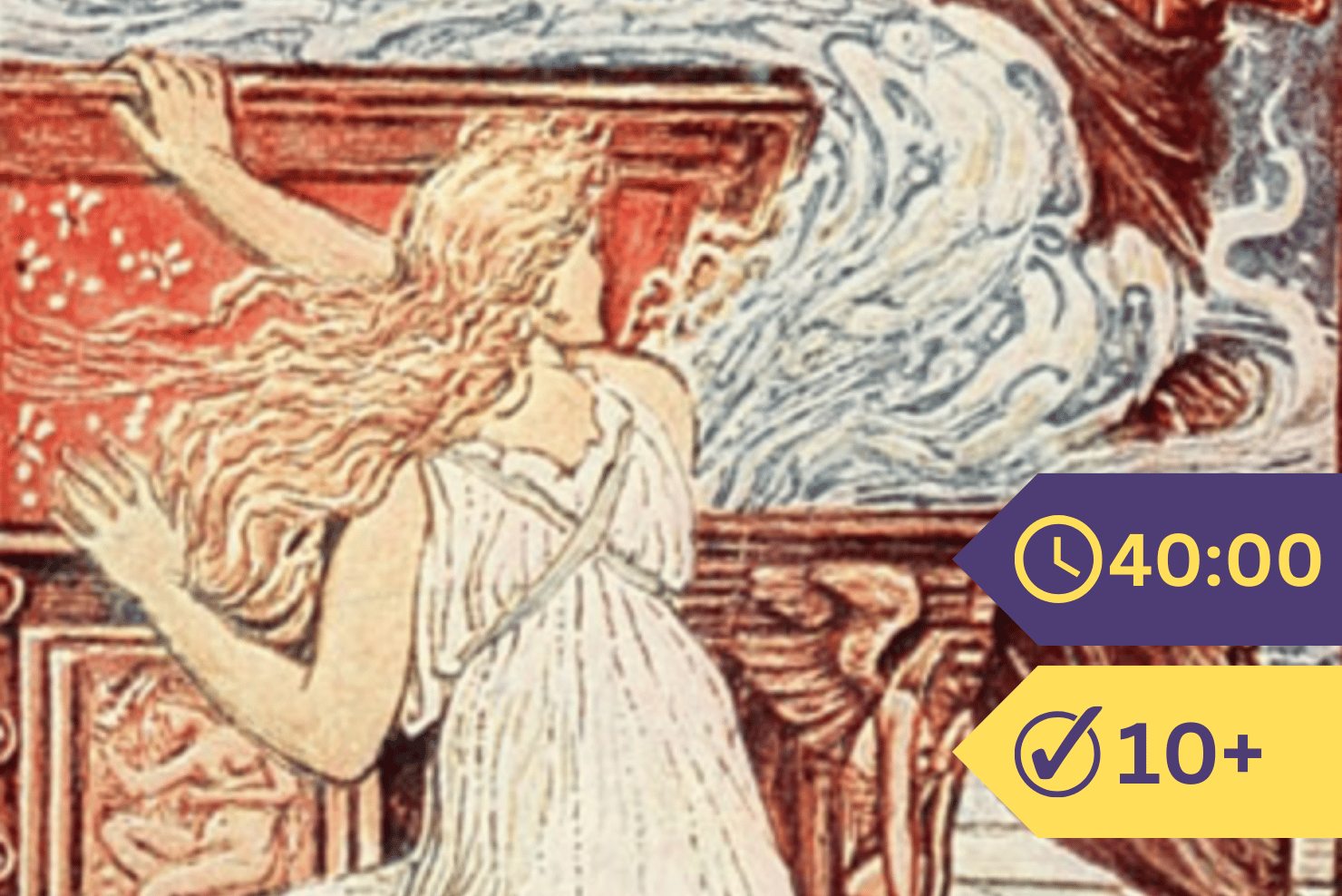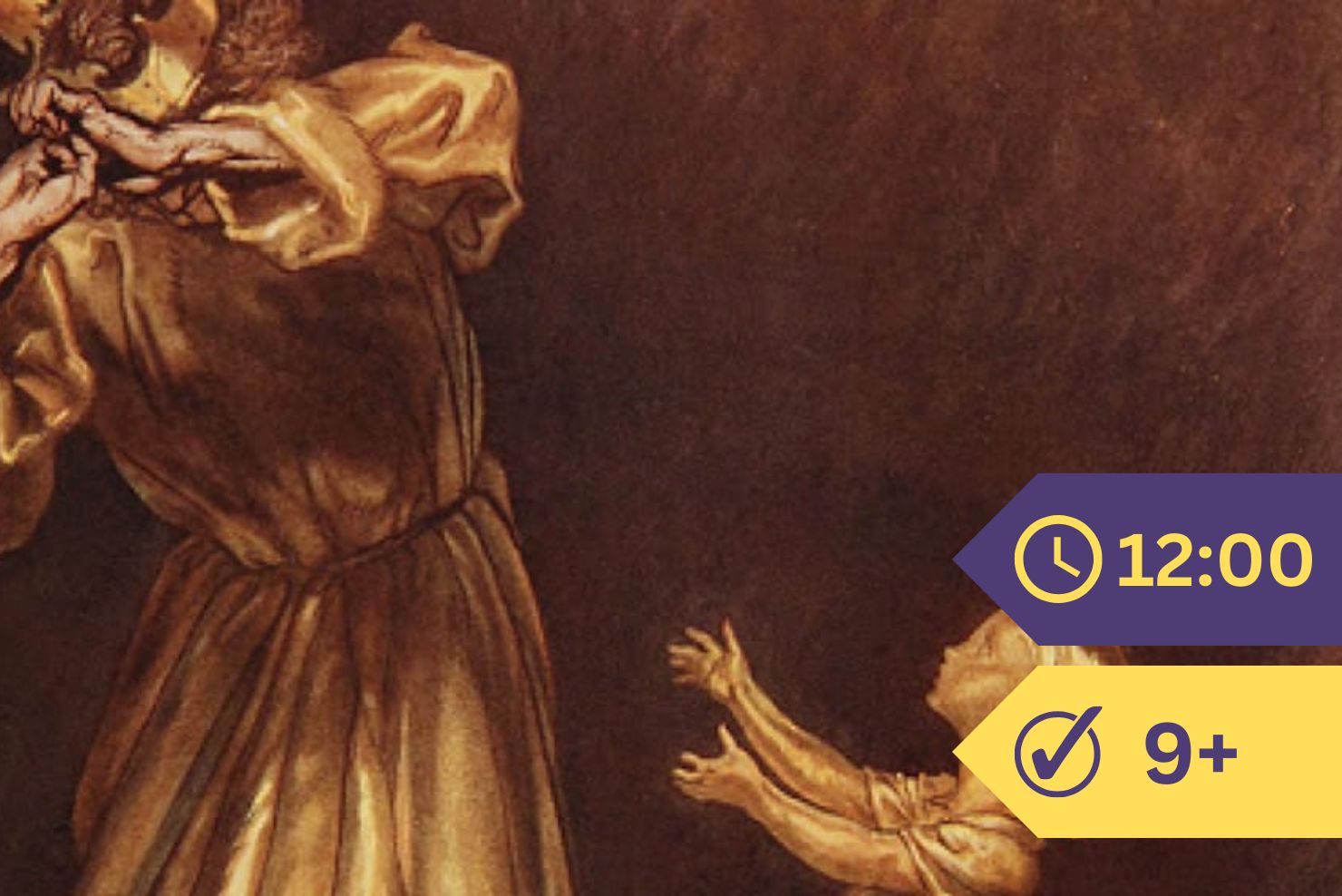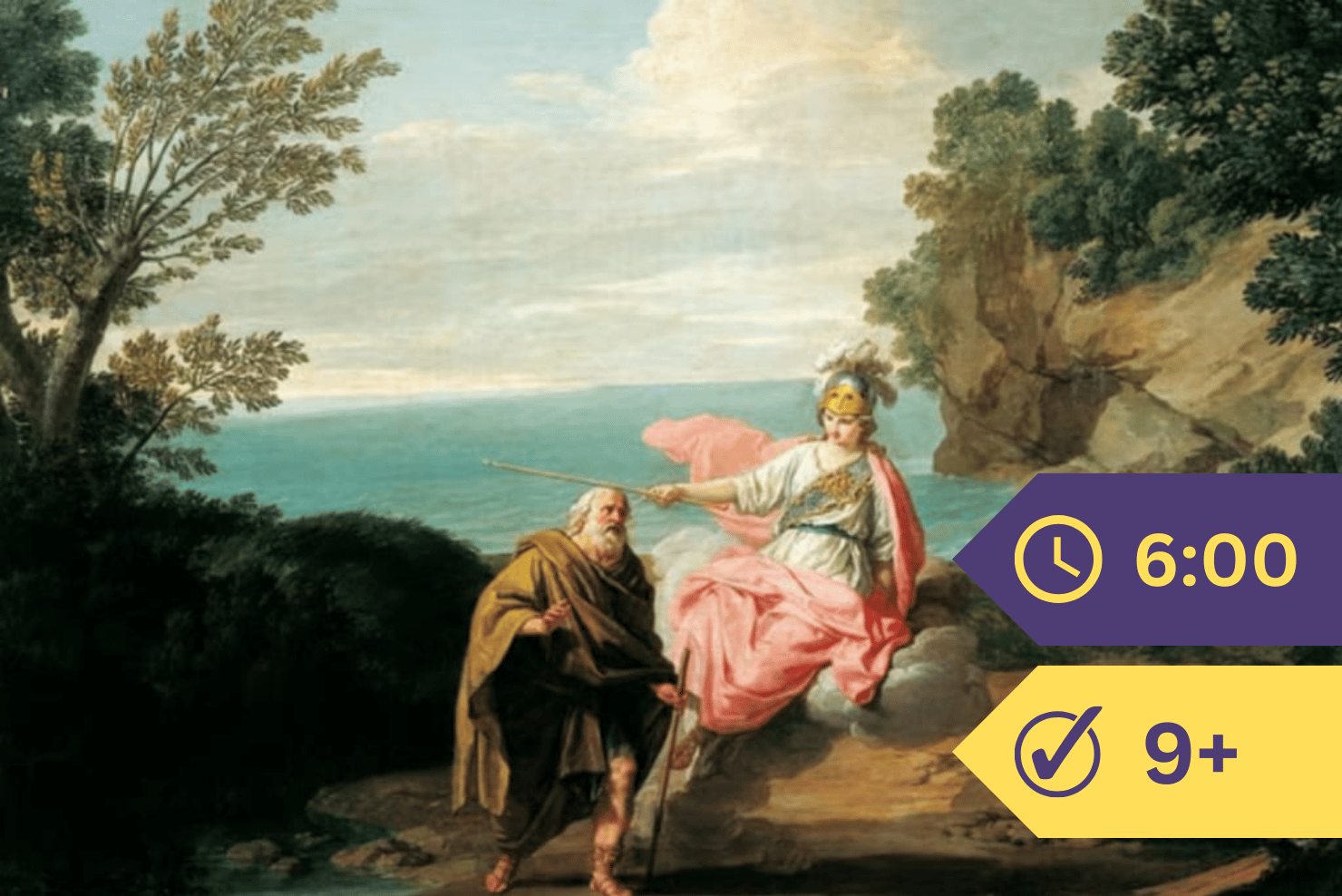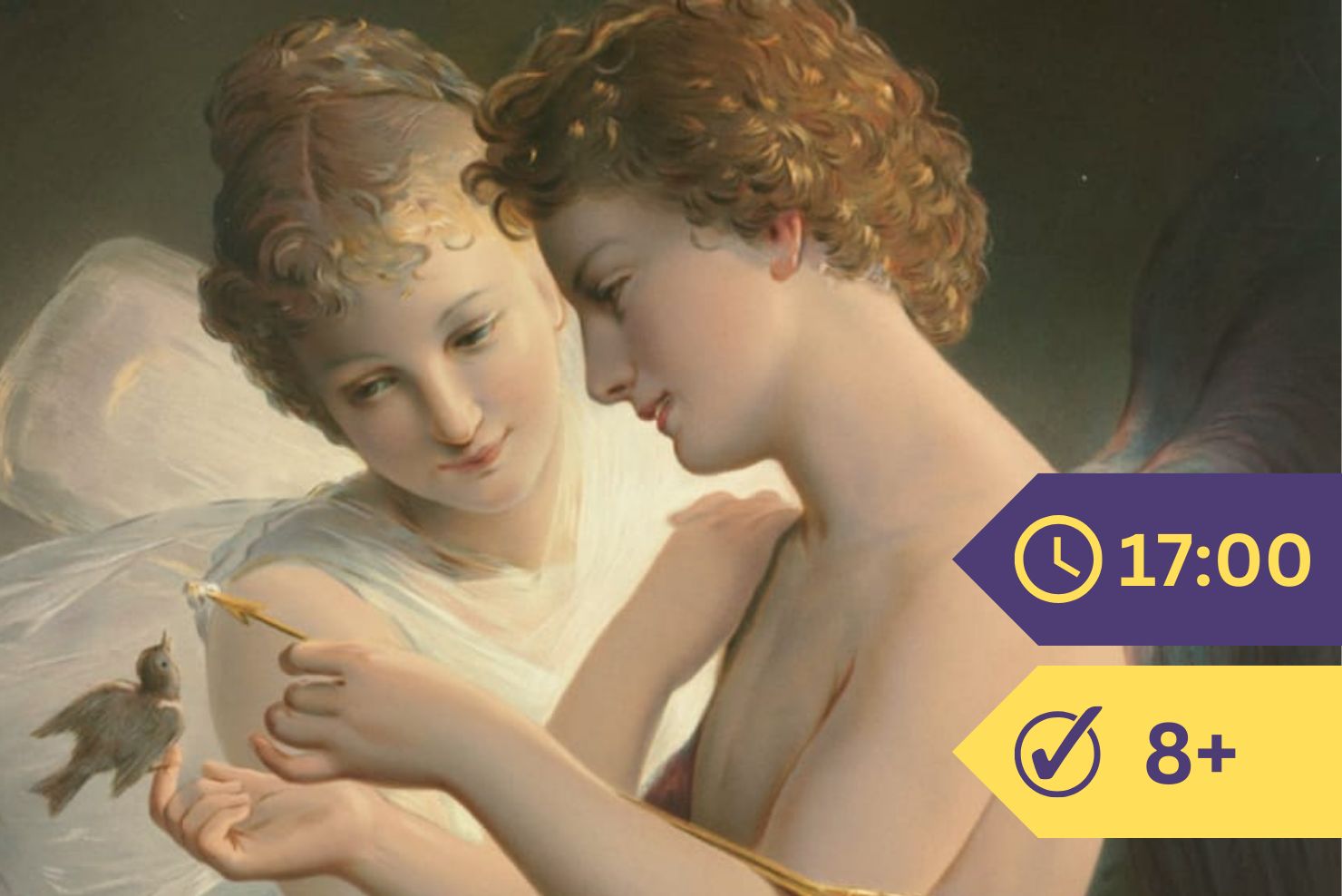They needed a new king in the country of Phrygia in Asia and there was an old saying at the court that some day they would have a ruler who arrived at the palace in a farm wagon.
No one had thought very much about this prophecy but, to the surprise of all, a peasant and his wife drove into the public square one day in an ox cart, bringing their son, Midas, on the seat between them. The peasant’s name was Gordius, and he dismounted, tying his wagon in such a hard knot that it looked as if he intended that the team should stay there. In fact it was called the Gordian knot and it was so hard a knot that it was reported that he who was able to untie it would be the ruler of all Asia.
The wagon remained there, just outside the palace gates, securely fastened, and Gordius and his wife walked home leaving Midas. It was so exactly an interpretation of the prophecy that Midas was made king and put upon the throne of Phrygia.
He had every opportunity of being a ruler of parts, for his humble birth would not have interfered at all, but Midas, from the very beginning of his reign, used his power to satisfy his own wishes instead of carrying out the will of the people.
Bacchus, with vine leaves twisted about his curling locks and a goblet of the purple juice of the grape always in his hand, was the god of the vineyards. King Midas made the acquaintance of Bacchus, who was a friendly, peaceful god and fond of human companionship. And Bacchus unexpectedly offered Midas his choice of any wish that he cherished.
What did King Midas ask but that whatever he touched might be turned to gold!
He hardly believed that Bacchus would be able to grant the gift of such greedy power as this, and Bacchus wished that Midas had made a better choice. The god consented, though, and King Midas hurried off to test his gift alone so that he need not share it with anyone. He could not believe his eyes when he discovered that the twig of an oak, which he pulled from a branch, turned in his fingers to a bar of solid gold. He picked up a stone; it turned to a gold nugget. He touched a piece of sod; it became a mass of gold dust, thick and heavy. He snatched an apple from an orchard tree; it was as if he had robbed the gardens of Hesperides of one of their apples of gold. King Midas’ joy knew no bounds. He hurried home and ordered his servants to prepare and serve a most costly and elaborate feast for him in celebration of his new found gift of gold.
He was hungry and could scarcely wait to eat; he almost snatched a piece of white bread to begin his meal. What was King Midas’ surprise to see the bread harden into a slab of yellow metal in his hands. He lifted a goblet of creamy milk to his lips and it congealed into a thick, molten liquid of gold. It was so with whatever King Midas tried to eat; fowls, fruit, cakes, all were changed to gold before he had a chance to even touch the food with his lips. He was faced in the midst of all his wealth with death by starvation.
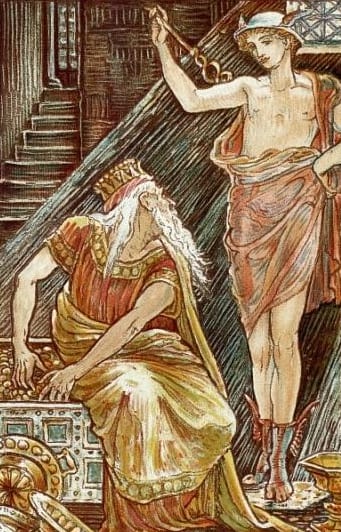
Raising his arms, shining with gold, in supplication to Bacchus, Midas begged that he might be saved from his own power of glittering destruction.
Although the gods were able to grant gifts, it was not possible for Bacchus to relieve a man from the dangers of his own use of a godly gift unless he, himself, helped. Bacchus was too kind hearted, however, to leave the foolish king to his fate so he consented to show him a way out of his dilemma.
“Go,” he told Midas, “to the River Pactolus. Follow its winding course to the fountain head and then plunge your body and head in its waters to wash away your greed and its punishment.”
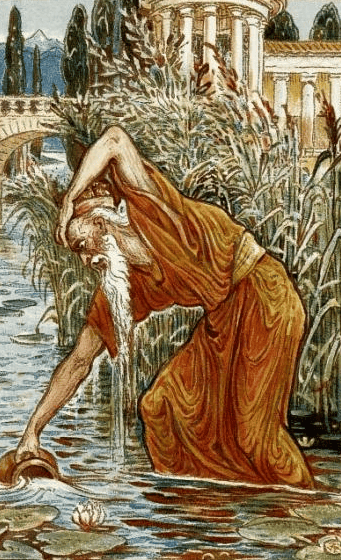
It was a long and difficult journey for King Midas whose joints, even, creaked and were stiff with the golden metal into which they had changed, and who could find no food or any bed on the way that was not at once transformed to gold the instant he touched it. He was obliged to flee and hide from robbers who pursued this fugitive form of gold. At last, however, he came to the river, immersed himself in it, and had the relief of feeling his stiff, glittering body soften to its natural flesh again.
“I have had enough of the power of gold,” Midas said when he returned to his court. “From this time I shall avoid all riches and live in the country.”
So King Midas acquired a farm and took his court there, becoming a worshipper of Pan, the goat-footed god of the fields.

